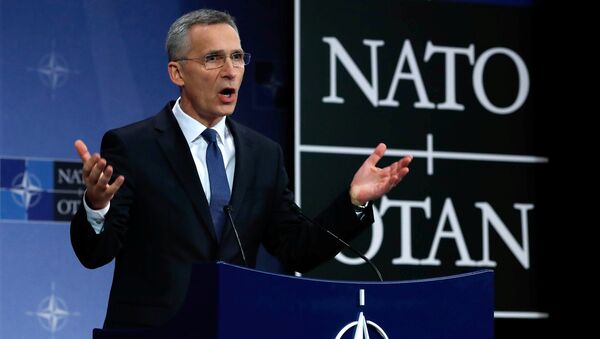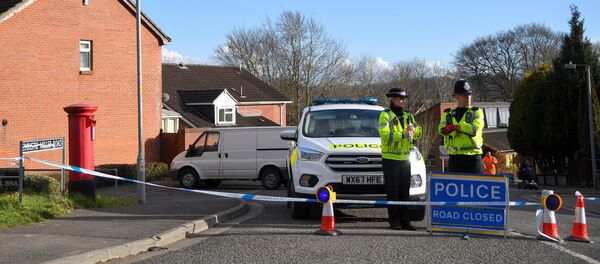Stoltenberg said that the alliance had withdrawn the accreditation of seven staff at the Russian Mission to NATO and denied the pending accreditation request for three others, which means that the maximum size of the mission would be reduced to 20 employees from 30.
"It sends a very clear message to Russia that it has costs," the NATO chief told reporters.
According to the NATO official, the decision does not change NATO’s policy towards Russia.
"NATO remains committed to our dual-track approach of strong defence and openness to dialogue, including by working to prepare the next meeting of the NATO-Russia Council," he added.
According to the alliance's statement, NATO warned that the nerve agent attack on ex-Russian intelligence officer must have "consequences."
Moscow will certainly respond to NATO decision to reduce the number of staff at the Russian mission to the alliance from 30 to 20 people, a source in the Russian Foreign Ministry told Sputnik on Tuesday.
"This step by NATO very much narrows the possibilities for starting such a dialogue [between Moscow and the alliance], which is now urgently needed in the current difficult situation with security in Europe," the source said.
On Monday, a number of the EU countries, as well as the US, Canada, Albania, Norway and Ukraine announced their decisions to expel about 100 Russian diplomats in connection with Moscow's alleged involvement in the nerve agent attack on Skripals.
Reacting to this move, Moscow has reiterated its "mirror-response" position, saying that the corresponding actions would be taken in respect of the United States and the European Union, as well as concerning the closure of the consulate in Seattle.
READ MORE: 'Improving Ties': Trump Orders Largest Ever Expulsion of Russian Diplomats
UK Prime Minister Theresa May has accused Russia of orchestrating the attack and expelled 23 Russian diplomats as a punitive measure.
The Russian side, in its turn, has strongly rejected all accusations and offered assistance in the investigation. However, Moscow's request for samples of the chemical substance used to poison Skripal was denied. Moscow also expelled UK diplomats and ordered the British Council to stop its activities in Russia in response to the UK move.



